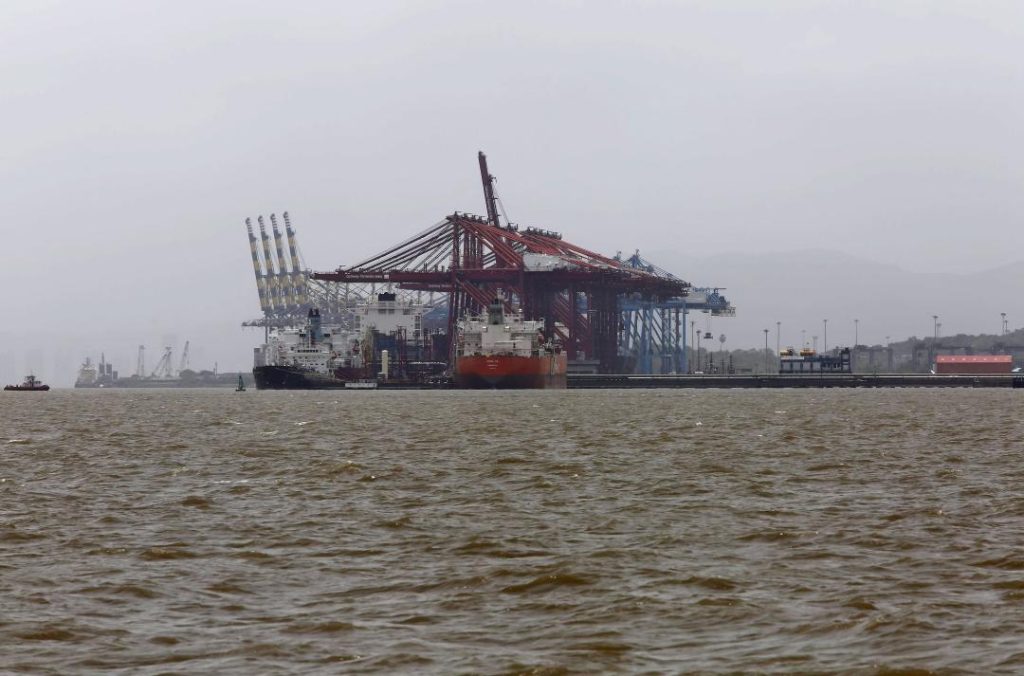
How was ₹800-cr scam undertaken by Tata firm & India’s largest container port’s ex-staff?
In a shocking revelation, the Central Bureau of Investigation (CBI) has exposed a massive scam worth ₹800 crore, perpetrated by former staff of Tata Consulting Engineers (TCE) and India’s largest container port, Jawaharlal Nehru Port (JNPT). The scam, which involves the dredging project at JNPT, has caused a staggering cumulative loss of over ₹4,200 crore.
The scam unfolded when the officials of TCE, the consultancy arm of the Tata Group, and JNPT, chose a deeper vessel draft of 15 meters instead of the recommended 14 meters, causing a loss of ₹1,163 crore. Furthermore, they opted for a single rate for dredging of different rock types, leading to a loss of ₹557 crore. To make matters worse, the contractors undertook dredging for an excess width, resulting in a loss of ₹964 crore.
The JNPT, which is one of the busiest container ports in the country, had awarded the dredging contract to a private company in 2013. The project, aimed at deepening the port’s channel to accommodate larger vessels, was expected to be completed within two years. However, the project was plagued by irregularities and corruption from the very beginning.
According to reports, the officials of TCE and JNPT deliberately chose a deeper vessel draft to increase the volume of dredging work, leading to a higher bill for the contractor. This decision not only caused financial losses but also resulted in the port’s channel being dredged to a depth that was not required, making it unsuitable for larger vessels.
The second major irregularity was the use of a single rate for dredging of different rock types. The contractor was paid the same rate for dredging hard rock, soft rock, and other types of rocks, despite the fact that the process of dredging different types of rocks varies significantly. This led to a significant increase in the cost of the project, causing a loss to the exchequer.
The third and final irregularity was the excessive dredging of the port’s channel, resulting in an excess width. The contractor was paid for the excess width, causing a loss of ₹964 crore to the port.
The CBI investigation, which is still underway, has revealed that the officials of TCE and JNPT were involved in a conspiracy to defraud the port and the contractor. The agency has registered a case against several officials of TCE, JNPT, and the contractor, and is likely to issue summons to them soon.
The scam has raised serious questions about the accountability of officials in the port and the consultancy firm. The fact that such a massive scam could be perpetrated without detection for so long is a cause for concern.
The JNPT, which is a major gateway for international trade, has been facing several challenges in recent years, including congestion, delays, and lack of efficiency. The scam is likely to further exacerbate these issues, causing losses to the port and the country as a whole.
The CBI investigation is expected to throw up more skeletons from the closet, and it is likely to lead to a major overhaul of the port’s management and governance structure. The Tata Group, which is known for its corporate social responsibility initiatives, is also expected to take serious note of the scam and take steps to ensure that such irregularities do not occur in the future.
In conclusion, the ₹800-crore scam perpetrated by former staff of TCE and JNPT is a shocking example of the extent to which corruption can go in India. The scam has caused a massive loss to the exchequer and has raised serious questions about the accountability of officials in the port and the consultancy firm. The CBI investigation is expected to lead to a major overhaul of the port’s management and governance structure, and it is hoped that the Tata Group will take steps to ensure that such irregularities do not occur in the future.






